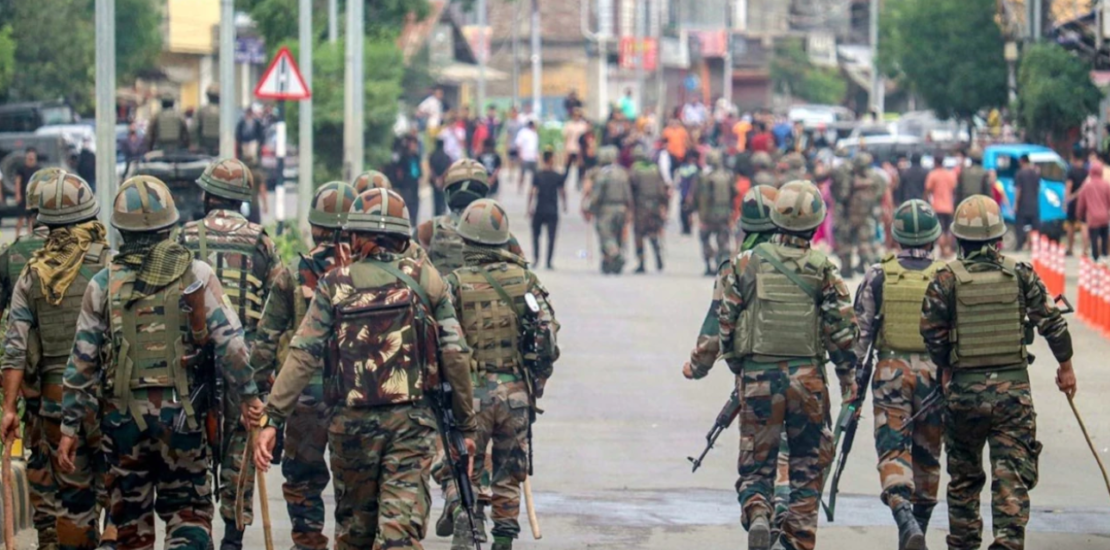Unholy Alliances – When Politics and National Security Collide
- September 12, 2023
- Posted by: admin
- Category: India

Managing national security requires a delicate balance between openness and discretion, where recent events expose the fragile equilibrium between safeguarding the nation’s security and pursuing political gains.
Managing national security is a complicated task beyond policy and military manoeuvres discussions. They enter a sphere where openness and discretion frequently find themselves intertwined in an intricate dance; both are necessary in their own right, but maintaining an equilibrium between them requires careful balancing. Recent occurrences have highlighted the precarious balance between protecting the nation’s security interests and pursuing narrow political gains. This has led to important questions regarding properly managing sensitive security problems for the nation’s greater good.West Africa’s Diplomatic Dilemm…PauseUnmuteLoaded: 25.72%Remaining Time -3:17FullscreenWest Africa’s Diplomatic Dilemma: Unraveling Tensions with France and USA
Maintaining a healthy equilibrium between concerns about national security and those about the political agenda has been one of the most difficult tasks throughout human history. A fundamental realisation has begun to emerge amidst all of the complexities: certain parts of topics about national security are best kept unsaid, regardless of the political compulsions that are currently in place. A historical occurrence in 1960, which saw Naga rebels bringing down a Dakota aircraft, perfectly encapsulates this understanding. Even though these past occurrences are still relevant today, it is essential to approach them with caution to avoid unneeded escalation and controversy.
In more recent times, the Mizo National Front’s insurrection and subsequent proclamation of independence in 1966 serve as an important example. This period highlights the requirement of calibrated responses to insurgency and an all-encompassing strategy to conflict resolution that does not jeopardise the nation’s safety. It is of the utmost importance to balance the urgency of utilising force when necessary and a perspective that considers post-conflict reconciliation and stability.
The Mizoram Accord of 1986 is undeniably a stellar illustration of the potential efficacy of discussion and diplomacy in ending rebellions. Mastering the art of bringing previously hidden parts into the open, creating dialogue, and responding to grievances was crucial to finding a workable solution. This success demonstrates the value of maintaining a practical and long-term outlook while addressing security issues.
Despite this, the current political landscape indicates possible traps that, in the quest for immediate political advantages, could undermine history’s lessons. The politicisation of sensitive topics of national security raises concerns about the consequences that could result from this decision. When issues that have already been resolved, such as the Mizoram Accord, are brought back up for discussion, there is a danger of upsetting the peace and stability that has been so painstakingly attained.
The relationship between the armed forces, paramilitary forces, intelligence services, and political leadership plays an essential role in the control of national security. The changing dynamics are highlighted by the recent decision to replace Assam Rifles men at a crucial checkpoint with civil police and CRPF personnel. This change brings to light broader concerns regarding the disintegration of institutions and the possible erosion of cohesion in the face of hardship.
Amid these dynamics, the rise of fundamentalist sentiments among particular sectors, especially among communities located overseas, highlights the requirement for a prudent approach to managing the sensitivity of religious and cultural matters. Political leaders must demonstrate knowledge, sagacity, and an inclusive frame of mind when dealing with challenges. The path taken to resolve the conflict in Punjab after years of unrest demonstrates how critical it is for leadership to engage in discourse and understand the underlying concerns to facilitate the development of favourable outcomes.
A cordial working relationship between the country’s military and political leadership is essential to protecting national security. Discussions over the selection process and decision-making at the highest echelons have been sparked due to recent events, including appointments and designations. It is of the utmost importance to put in place a reliable system that will ensure that those positions requiring the most expertise and experience are filled by candidates who are best suited for them.
When security personnel are used for political purposes, history provides a sobering reminder of the potential implications that can result from this action. The occurrences that occurred under the state of emergency serve as a reminder of how important it is to keep the military detached from politics to protect democratic ideals and the integrity of the nation.
In conclusion, it is essential to consider the delicate balance that must be maintained between openness and confidentiality in situations about national security. Political leadership’s approach to delicate national security matters should be directed by historic resonances and the lessons that can be learned from past battles. Even when the political climate shifts, the ultimate goal must always prioritise the nation’s welfare and security. This must be the case at all times. To ensure our country’s continued prosperity and safety, we must consistently commit to prioritising our nation’s interests over those of our political parties. We are charting a road towards a more safe and harmonious future as we navigate the complicated interaction between transparency and discretion.


Lt Col Manoj K ChannanLt Col Manoj K Channan (Retd), served in Indian Army, Armoured Corps, 65 Armoured Regiment, 27 August 83- 07 April 2007. Currently consulting with Broadcast Engineering Consultants India Limited (a government of India enterprise under the Ministry of Information and Broadcasting) as Business Associate(Strategic Affairs). Operational experience in the Indian Army includes Sri Lanka – OP PAWAN, Nagaland and Manipur – OP HIFAZAT, and Bhalra – Bhaderwah, District Doda Jammu and Kashmir, including setting up of a counter insurgency school – OP RAKSHAK. He is a A regular contributor to issues on Defense and Security in the Financial Express online, Defence and Strategy, Fauji Magazine and Salute Magazine. *Views are personal.
